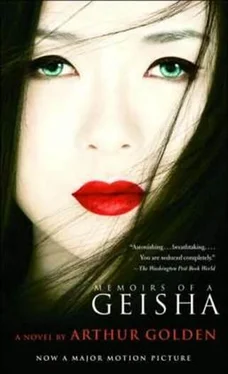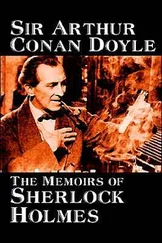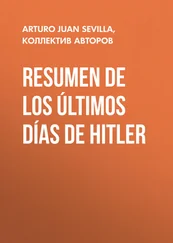“Stand up a moment,” he told me.
I didn’t dare disobey him, though I had no idea what he wanted. As it turned out, all he did was take a handkerchief from his pocket to wipe away the grit that had stuck to my face from the top of the stone wall. Standing so close before him, I could smell the odor of talc on his smooth skin, which made me recall the day when the Emperor Taisho’s nephew had come to our little fishing village. He’d done nothing more than step out of his car and walk to the inlet and back, nodding to the crowds that knelt before him, wearing a Western-style business suit, the first I’d ever seen-for I peeked at him, even though I wasn’t supposed to. I remember too that his mustache was carefully groomed, unlike the hair on the faces of the men in our village, which grew untended like weeds along a path. No one of any importance had ever been in our village before that day. I think we all felt touched by nobility and greatness.
Occasionally in life we come upon things we can’t understand because we have never seen anything similar. The Emperor’s nephew certainly struck me that way; and so did the Chairman. When he had wiped away the grit and tears from my face, he tipped my head up.
“Here you are… a beautiful girl with nothing on earth to be ashamed of,” he said. “And yet you’re afraid to look at me. Someone has been cruel to you… or perhaps life has been cruel.”
“I don’t know, sir,” I said, though of course I knew perfectly well.
“We none of us find as much kindness in this world as we should,” he told me, and he narrowed his eyes a moment as if to say I should think seriously about what he’d just said.
I wanted more than anything to see the smooth skin of his face once more, with its broad brow, and the eyelids like sheaths of marble over his gentle eyes; but there was such a gulf in social standing between us. I did finally let my eyes flick upward, though I blushed and looked away so quickly that he may never have known I met his gaze. But how can I describe what I saw in that instant? He was looking at me as a musician might look at his instrument just before he begins to play, with understanding and mastery. I felt that he could see into me as though I were a part of him. How I would have loved to be the instrument he played!
In a moment he reached into his pocket and brought some- thing out.
“Do you like sweet plum or cherry?” he said.
“Sir? Do you mean… to eat?”
“I passed a vendor a moment ago, selling shaved ice with syrup on it. I never tasted one until I was an adult, but I’d have liked them as a child. Take this coin and buy one. Take my handkerchief too, so you can wipe your face afterward,” he said. And with this, he pressed the coin into the center of the handkerchief, wrapped it into a bundle, and held it out to me.
From the moment the Chairman had first spoken to me, I’d forgotten that I was watching for a sign about my future. But when I saw the bundle he held in his hand, it looked so much like the shrouded moth, I knew I’d come upon the sign at last. I took the bundle and bowed low to thank him, and tried to tell him how grateful I was-though I’m sure my words carried none of the fullness of my feelings. I wasn’t thanking him for the coin, or even for the trouble he’d taken in stopping to help me. I was thanking him for… well, for something I’m not sure I can explain even now. For showing me that something besides cruelty could be found in the world, I suppose.
I watched him walk away with sickness in my heart-though it was a pleasing kind of sickness, if such a thing exists. I mean to say that if you have experienced an evening more exciting than any in your life, you’re sad to see it end; and yet you still feel grateful that it happened. In that brief encounter with the Chairman, I had changed from a lost girl facing a lifetime of emptiness to a girl with purpose in her life. Perhaps it seems odd that a casual meeting on the street could have brought about such change. But sometimes life is like that, isn’t it? And I really do think if you’d been there to see what I saw, and feel what I felt, the same might have happened to you.
When the Chairman had disappeared from sight, I rushed up the street to search for the shaved ice vendor. The day wasn’t especially hot, and I didn’t care for shaved ice; but eating it would make my encounter with the Chairman linger. So I bought a paper cone of shaved ice with cherry syrup on it, and went to sit again on the same stone wall. The taste of the syrup seemed startling and complex, I think only because my senses were so heightened. If I were a geisha like the one named Izuko, I thought, a man like the Chairman might spend time with me. I’d never imagined myself envying a geisha. I’d been brought to Kyoto for the purpose of becoming one, of course; but up until now I’d have run away in an instant if I could have. Now I understood the thing I’d overlooked; the point wasn’t to become a geisha, but to be one. To become a geisha… well, that was hardly a purpose in life. But to be a geisha… I could see it now as a stepping-stone to something else. If I was right about the Chairman’s age, he was probably no more than forty-five. Plenty of geisha had achieved tremendous success by the age of twenty. The geisha Izuko was probably no more than twenty-five herself. I was still a child, nearly twelve… but in another twelve years I’d be in my twenties. And what of the Chairman? He would be no older by that time than Mr. Tanaka was already.
The coin the Chairman had given me was far more than I’d needed for a simple cone of shaved ice. I held in my hand the change from the vendor-three coins of different sizes. At first I’d thought of keeping them forever; but now I realized they could serve a far more important purpose.
I rushed to Shijo Avenue and ran all the way to its end at the eastern edge of Gion, where the Gion Shrine stood. I climbed the steps, but I felt too intimidated to walk beneath the great two-story entrance gate with its gabled roof, and walked around it instead. Across the gravel courtyard and up another flight of steps, I passed through the torii gate to the shrine itself. There I threw the coins into the offertory box-coins that might have been enough to take me away from Gion-and announced my presence to the gods by clapping three times and bowing. With my eyes squeezed tightly shut and my hands together, I prayed that they permit me to become a geisha somehow. I would suffer through any training, bear up under any hardship, for a chance to attract the notice of a man like the Chairman again.
When I opened my eyes, I could still hear the traffic on Higashi-Oji Avenue. The trees hissed in a gust of wind just as they had a moment earlier. Nothing had changed. As to whether the gods had heard me, I had no way of knowing. I could do nothing but tuck the Chairman’s handkerchief inside my robe and carry it with me back to the okiya.

One morning quite some months later, while we were putting away the ro underrobes-the ones made of lightweight silk gauze for hot weather-and bringing out the hitoe underrobes instead-the ones with no lining, used in September-I came upon a smell in the entryway so horrible that I dropped the armload of robes I was carrying. The smell was coming from Granny’s room. I ran upstairs to fetch Auntie, because I knew at once that something must be terribly wrong. Auntie hobbled down the stairs as quickly as she could and went in to find Granny dead on the floor; and she had died in a most peculiar manner.
Granny had the only electric space heater in our okiya. She used it every single night except during the summer. Now that the month of September had begun and we were putting away the summer-weight underrobes, Granny had begun to use her heater again. That doesn’t mean the weather was necessarily cool; we change the weight of our clothing by the calendar, not by the actual temperature outdoors, and Granny used her heater just the same way. She was unreasonably attached to it, probably because she’d spent so many nights of her life suffering miserably from the cold.
Читать дальше













